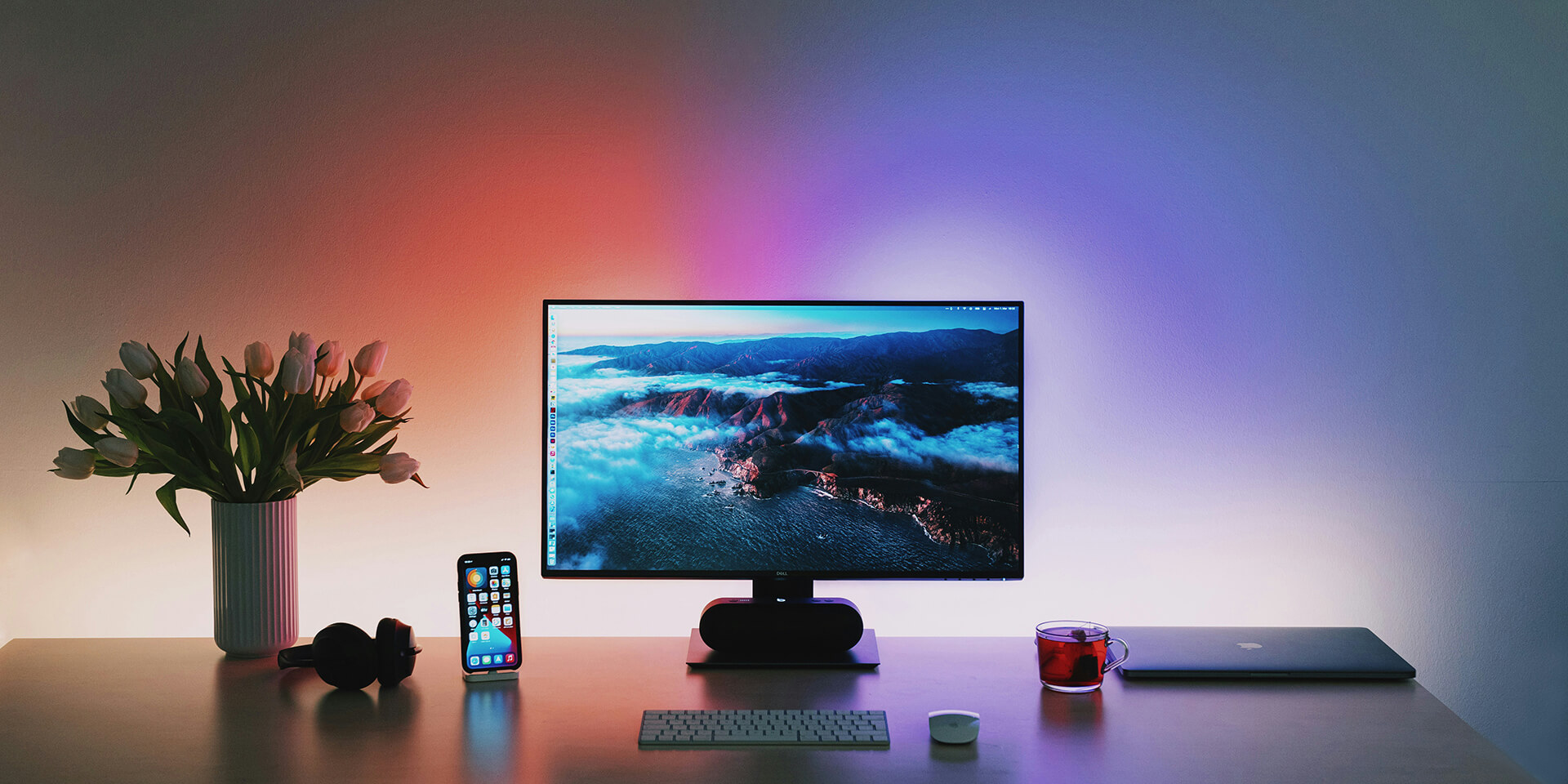Mastering the art of effective study habits can be the key to unlocking your full academic potential. In this comprehensive guide, we will explore a range of research-backed strategies to help you optimize your study sessions, enhance productivity, and achieve long-term learning goals. From time management techniques to active learning approaches, this article aims to empower students and learners of all ages to take control of their educational journey and thrive in their studies.
Key Takeaways
- Discover the power of time management and prioritization to maximize your study efficiency.
- Learn how to eliminate distractions and focus your mind for optimal productivity.
- Explore effective note-taking methods to capture and retain knowledge effectively.
- Understand the benefits of active learning and collaborative discussions for deeper understanding.
- Develop self-discipline and organizational skills to maintain consistent progress.
Mastering Time Management for Studious Minds
Time is a precious commodity, especially for students juggling multiple responsibilities. Effective time management is the key to academic success, allowing you to maximize productivity and maintain a balanced organization throughout your studies.
Prioritizing Tasks: The Key to Academic Success
The first step in mastering time management is to prioritize your tasks. Create a to-do list and assign each item a level of importance, categorizing them as urgent, important, or low priority. This strategic approach ensures you tackle the most critical assignments and projects first, minimizing the risk of falling behind.
- Identify your most important tasks and deadlines
- Allocate time and resources accordingly
- Tackle high-priority items before moving on to less urgent tasks
Scheduling Strategies: Creating a Balanced Routine
Establishing a structured study routine is essential for maintaining productivity and organization. Experiment with scheduling techniques, such as the Pomodoro method or time blocking, to create a balanced schedule that incorporates dedicated study time, breaks, and other commitments.
| Scheduling Technique | Description | Benefits |
|---|---|---|
| Pomodoro Technique | Work in 25-minute intervals, followed by short breaks | Improves focus, reduces procrastination, and helps you stay on track |
| Time Blocking | Allocate specific time slots for different tasks and activities | Enhances productivity, minimizes distractions, and promotes a sense of control over your schedule |
Remember, a balanced routine is essential for maintaining your physical and mental well-being. Allocate time for self-care, leisure activities, and social interactions to prevent burnout and ensure a sustainable study approach.
Unleashing Focus: Eliminate Distractions and Maximize Productivity
In the pursuit of academic excellence, maintaining laser-sharp focus is paramount. Distracted minds often fall victim to procrastination, hindering their ability to reach their full potential. However, with the right strategies, you can cultivate a distraction-free environment and unleash your productivity potential.
One effective technique to boost focus is the Pomodoro Technique. This method involves breaking down your work into 25-minute intervals, known as “Pomodoros,” separated by short breaks. This rhythm helps train your mind to stay on task, preventing the temptation to succumb to distractions.
Alongside the Pomodoro Technique, creating a dedicated study space can significantly improve your focus. Designate a quiet, clutter-free area free from digital distractions, such as smartphones and social media. This intentional separation of work and leisure helps your brain associate the designated space with increased productivity and focus.
| Strategies to Enhance Focus | Benefits |
|---|---|
| Pomodoro Technique | Trains the mind to stay on task, prevents procrastination |
| Dedicated Study Space | Eliminates distractions, associates the area with productivity |
| Mindfulness Practices | Enhances concentration, reduces stress and anxiety |
Incorporating mindfulness practices, such as meditation or deep breathing exercises, can further boost your focus and overall productivity. By training your mind to be present and attentive, you can develop the ability to stay engaged and resist the temptation of distractions.
“The key to productivity is not doing more, but rather, doing what matters most with laser-like focus.” – Cal Newport, author of “Deep Work”
Remember, the path to academic success is paved with intentional focus and the ability to maintain concentration. By embracing the strategies outlined here, you can unleash your full potential and maximize your productivity, setting the stage for a rewarding and fulfilling learning journey.
The Art of Note-Taking: Capturing Knowledge Effectively
Effective note-taking is an essential skill for students aiming to retain and organize information. This section delves into the Cornell Method, a structured approach to note-taking, and explores the pros and cons of digital versus handwritten notes to help you find the best method for your learning style.
Cornell Method: A Proven Technique for Organized Notes
The Cornell Method is a popular note-taking strategy that helps students stay organized and focused. This method divides the page into three sections: the main note-taking area, a narrow column on the left for key ideas and questions, and a summary area at the bottom. By structuring your notes in this way, you can easily review and identify the most important concepts, facilitating effective note-taking and active learning.
Digital vs. Handwritten Notes: Exploring the Best Approach
In the digital age, students have the option to take notes using laptops, tablets, or smartphones. While digital note-taking offers convenience and searchability, some studies suggest that handwritten notes may be more effective for organization and retention. Handwriting forces you to be more selective and engaged with the material, potentially leading to deeper understanding. Ultimately, the choice between digital and handwritten notes comes down to personal preference and learning style.
“Effective note-taking is not just about capturing information; it’s about actively engaging with the material and transforming it into a useful reference for future learning and review.”
Regardless of your preferred method, the key to successful note-taking is to find a system that works best for you and consistently apply it. By mastering the art of note-taking, you can elevate your academic performance and foster a deeper understanding of the subjects you study.
Active Learning: Engaging Your Mind for Lasting Retention
Effective study habits go beyond mere memorization. To truly grasp and retain information, active learning strategies are key. By actively engaging with the material, students can deepen their understanding and make the learning process more meaningful.
Collaborative Learning: Harnessing the Power of Peer Discussions
One powerful active learning technique is collaborative learning. When students engage in group discussions, they not only reinforce their own understanding but also learn from their peers. This collaborative approach encourages critical thinking, enhances communication skills, and fosters a deeper sense of engagement with the subject matter.
- Peer discussions allow students to articulate their thoughts and ideas, leading to a more active processing of information.
- Exchanging perspectives and challenging each other’s ideas can uncover new insights and help identify gaps in understanding.
- Collaborative learning promotes active listening, empathy, and the ability to consider alternative viewpoints.
By incorporating active learning techniques, such as collaborative discussions, students can enhance their metacognition – the ability to reflect on their own learning process. This self-awareness enables them to identify their strengths, weaknesses, and areas for improvement, ultimately leading to more organized and effective active learning habits.
| Benefits of Collaborative Learning | Drawbacks of Passive Learning |
|---|---|
| Enhances critical thinking and problem-solving skills | Promotes surface-level understanding and memorization |
| Encourages active engagement and participation | Lacks opportunities for application and practical learning |
| Fosters communication and teamwork abilities | Fails to develop self-directed learning and metacognitive skills |
By embracing active learning strategies, students can unlock the true potential of their study habits, leading to deeper understanding, improved retention, and a more rewarding academic journey.
study habits: The Foundation of Academic Excellence
Achieving academic excellence starts with the foundation of effective study habits. Developing a consistent and structured approach to learning can unlock your full potential and lead to long-term success in your educational journey.
One key aspect of cultivating strong study habits is organization. Keeping your study space clean and decluttered can help minimize distractions and enhance your focus. Additionally, maintaining a well-organized schedule can ensure you allocate sufficient time for studying, while also balancing other commitments.
Alongside organization, self-discipline is a crucial component of effective study habits. Resisting the temptation of procrastination and consistently dedicating time to your studies can be challenging, but it’s a skill that pays dividends in the long run. Techniques like the Pomodoro method can help you stay on track and make the most of your study sessions.
Ultimately, the foundation of academic excellence lies in the consistent and intentional cultivation of effective study habits. By prioritizing organization, self-discipline, and a structured approach to learning, you can unlock your full potential and achieve the success you deserve.
Overcoming Procrastination: Strategies to Stay on Track
Procrastination can be a significant obstacle to academic success, but there are effective strategies to combat this common challenge. One such technique is the Pomodoro method, a simple yet powerful time management tool that can help students stay focused and productive during their study sessions.
Pomodoro Technique: A Simple Yet Effective Time Management Tool
The Pomodoro Technique is based on the idea of breaking down work into focused, 25-minute intervals, known as “Pomodoros,” separated by short breaks. This approach helps to maintain productivity and time management by reducing the temptation to procrastinate. Here’s how it works:
- Set a timer for 25 minutes and work without interruption.
- When the timer goes off, take a 5-minute break.
- Repeat this cycle four times, then take a longer 15-20 minute break.
By breaking tasks into manageable chunks and incorporating scheduled breaks, the Pomodoro Technique can help students maintain their focus and stay on track, even during the most challenging procrastination episodes.
| Technique | Description | Benefits |
|---|---|---|
| Pomodoro Technique | A time management method that involves working in focused 25-minute intervals, separated by short breaks. | Improves productivity, reduces procrastination, and enhances time management skills. |
“The Pomodoro Technique has been a game-changer for my study habits. It helps me stay on task and avoid the temptation to procrastinate.”
– Jane Doe, College Student
By incorporating the Pomodoro Technique and other proven strategies, students can overcome procrastination and achieve greater productivity in their academic pursuits.
Cultivating Self-Discipline: The Key to Consistent Progress
Achieving academic success requires more than just intellectual capacity – it’s the cultivation of self-discipline that truly empowers students to reach their full potential. In this section, we’ll explore the importance of self-discipline and uncover strategies to help you stay motivated, organized, and committed to your studies.
Self-discipline is the cornerstone of effective study habits. It’s the ability to control your impulses, prioritize tasks, and persevere through challenges. When you cultivate self-discipline, you gain the power to overcome procrastination, resist distractions, and consistently work towards your academic goals.
Developing self-discipline is a journey, and it starts with small, consistent steps. Here are some practical tips to help you build this essential skill:
- Set realistic goals: Break down your objectives into manageable, measurable tasks to keep you focused and motivated.
- Eliminate distractions: Identify and minimize the things that pull you away from your studies, such as social media, TV, or unnecessary internet browsing.
- Establish a routine: Create a daily schedule that incorporates study time, breaks, and other important activities to help you stay on track.
- Practice accountability: Share your goals with a study partner or mentor who can provide support and hold you accountable.
- Celebrate small wins: Acknowledge your progress and reward yourself for completing tasks or achieving milestones along the way.
Remember, self-discipline is not something you’re born with – it’s a skill that can be cultivated and strengthened over time. By embracing these strategies and staying committed to your academic journey, you’ll unlock the key to consistent progress and lasting success.
| Trait | Description | Importance for Academic Success |
|---|---|---|
| Self-Discipline | The ability to control one’s impulses, stay focused, and persist through challenges | Allows students to overcome procrastination, manage their time effectively, and consistently work towards their academic goals |
| Motivation | The drive and desire to achieve one’s objectives | Keeps students engaged, enthusiastic, and committed to their studies, even in the face of obstacles |
| Organization | The ability to maintain order, structure, and efficiency in one’s work and study habits | Helps students stay on top of their responsibilities, manage their time effectively, and minimize distractions |
Organization Skills: Decluttering Your Mind and Study Space
In the pursuit of academic excellence, maintaining a well-organized study environment can make all the difference. Effective organization skills not only enhance productivity but also create a focused and distraction-free workspace, allowing students to maximize their learning potential.
Digital Organization: Leveraging Technology for Academic Success
In the digital age, organization extends beyond the physical realm. Embracing technology can be a game-changer in streamlining study routines and minimizing clutter. From digital note-taking apps to cloud-based file management systems, the right organization and productivity tools can transform the way students approach their academic endeavors.
- Utilize digital note-taking platforms: Opt for applications that offer features such as searchable text, easy organization, and seamless synchronization across devices.
- Embrace cloud-based storage: Leverage cloud-based storage services to store and access study materials, essays, and research notes from anywhere, ensuring everything is at your fingertips.
- Implement task management systems: Explore digital task management tools that help you prioritize assignments, set deadlines, and stay on top of your academic responsibilities.
By harnessing the power of technology, students can cultivate a well-organized digital study environment that fosters productivity and enhances their overall academic journey.
| Tool | Feature | Benefit |
|---|---|---|
| Evernote | Cross-platform note-taking, organization, and collaboration | Seamless access to notes, research, and ideas from any device |
| Google Drive | Cloud-based file storage and sharing | Secure and accessible storage for all academic documents |
| Trello | Visual task management and project planning | Improved task prioritization and time management |
“Organized space leads to an organized mind. When your environment is cluttered, your thinking becomes cluttered.”
By embracing both physical and digital organization, students can unlock their true academic potential, fostering a focused and distraction-free learning environment that propels their success.
Metacognition: Reflecting on Your Learning Journey
Developing metacognitive skills, or the ability to think about one’s own thinking and learning process, is crucial for long-term academic success. By cultivating self-awareness and actively reflecting on their study habits, students can identify areas for improvement and continuously enhance their learning strategies.
Metacognition empowers students to take control of their educational journey. It involves asking key questions such as, “What am I learning?” “How am I learning it?” and “How can I learn it better?” This self-reflective mindset enables students to monitor their progress, adjust their approaches, and become more active learners.
One effective technique for fostering metacognition is the use of learning logs. Students can regularly record their thoughts, challenges, and insights about the learning process. This practice encourages self-awareness and helps students identify their unique strengths, weaknesses, and preferred learning styles.
- Reflect on your study habits and learning preferences.
- Identify areas where you excel and areas that require more attention.
- Experiment with different learning strategies and evaluate their effectiveness.
- Celebrate your successes and use setbacks as opportunities for growth.
By embracing metacognition, students can become more self-directed, adaptive, and empowered in their academic pursuits. This invaluable skill not only enhances learning outcomes but also prepares students for lifelong learning and personal development.
Conclusion: Embracing Effective Study Habits for Lifelong Learning
As we reach the end of this comprehensive guide, it’s clear that adopting effective study habits is the foundation for academic success and lifelong learning. By incorporating the strategies and techniques explored throughout this article, students can unlock their full potential and achieve their educational goals.
From mastering time management and eliminating distractions to honing note-taking skills and fostering active learning, each component plays a vital role in shaping the mindset and habits necessary for continued growth and development. Embracing these practices will not only benefit students in the present but also equip them with the skills and resilience required for a lifetime of learning and personal advancement.
Remember, the journey of learning is an ongoing process, and the habits you cultivate today will serve as the building blocks for your future success. Embrace the lessons shared in this article, and embark on a path of lifelong learning that will open doors to new opportunities and enable you to thrive in an ever-changing world.
FAQ
What are the most effective study habits for academic success?
Effective study habits include mastering time management techniques, eliminating distractions to maintain focus, employing active learning strategies, developing strong note-taking skills, and cultivating self-discipline and metacognition.
How can I better manage my time for studying?
To improve time management, focus on prioritizing tasks, creating a balanced study routine, and minimizing time-wasting activities. Techniques like the Pomodoro method can also help you stay on track.
What can I do to eliminate distractions and boost my productivity?
To maximize productivity, create a distraction-free study environment, develop concentration-boosting strategies, and overcome procrastination. Experiment with different techniques to find what works best for you.
What are the benefits of active learning compared to passive learning?
Active learning strategies, such as engaging in discussions, creating visual aids, and teaching others, can significantly enhance information retention and deep understanding. These methods encourage you to actively process and apply the material, leading to better learning outcomes.
Should I take notes digitally or by hand?
There are pros and cons to both digital and handwritten note-taking. Digital notes offer easier organization and searchability, while handwritten notes can improve retention and focus. Experiment with both methods to find the approach that works best for your learning style.
How can I develop better self-discipline for studying?
Cultivating self-discipline is key to consistent academic progress. Strategies include setting clear goals, creating a structured study routine, and using accountability measures like the Pomodoro technique. It’s also important to stay motivated and celebrate your achievements along the way.
What is metacognition, and how can it improve my study habits?
Metacognition, or the ability to think about your own thinking and learning process, can help you identify areas for improvement and continuously enhance your study strategies. Regularly reflecting on your learning journey and adjusting your approach can lead to more effective and efficient studying.









